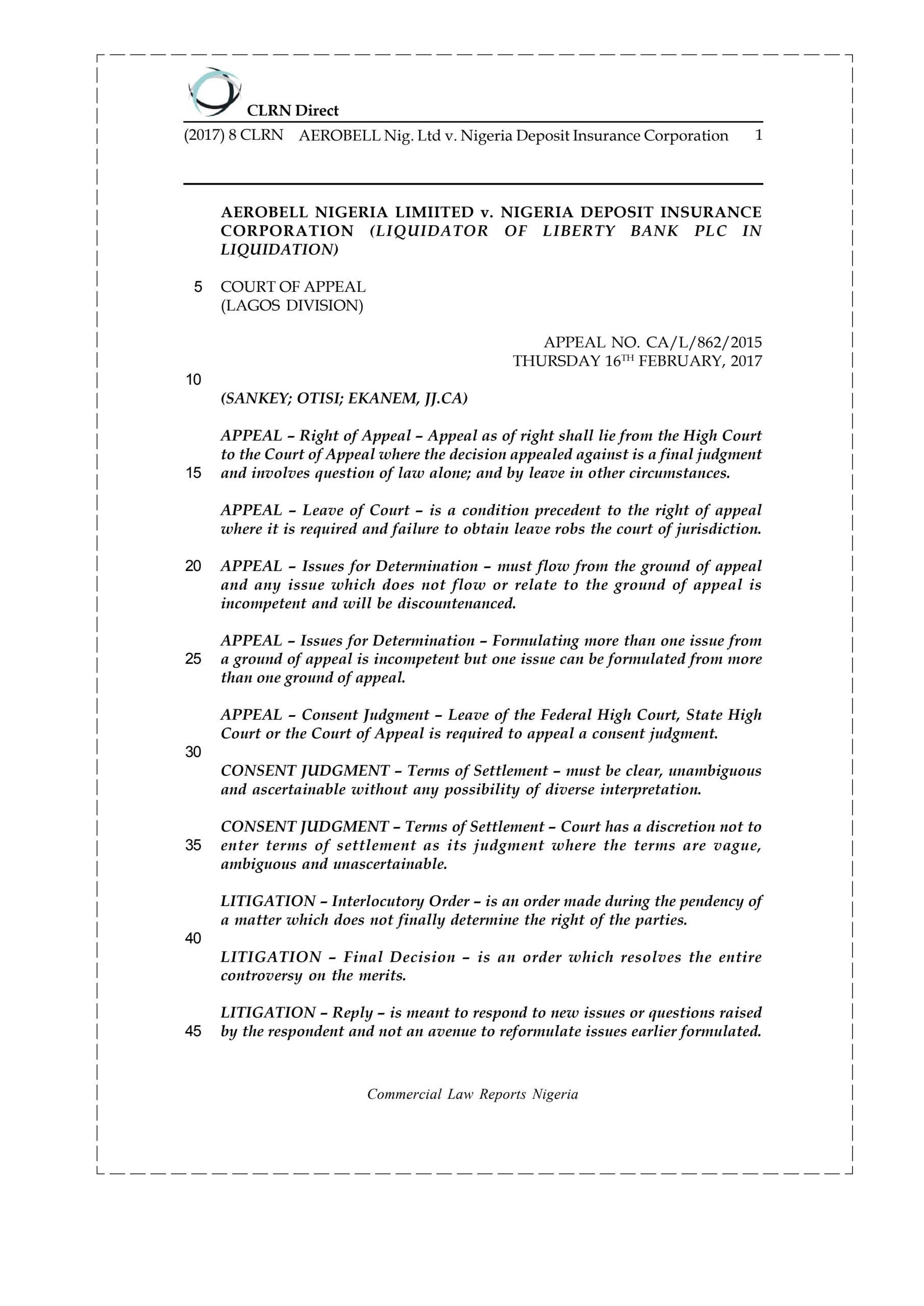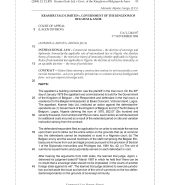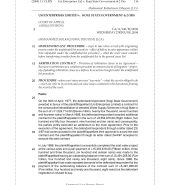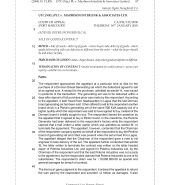-

N.U.R.T.W. & 60 ORS. v. FIRST CONTINENTAL INSURANCE CO. LTD.
- kg
2 × ₦300
-

Brawal Shipping Nig. Ltd v. Aphrodite Nig. Ltd
- kg
1 × ₦300
AEROBELL Nig. Ltd v. Nigeria Deposit Insurance Corporation
₦300
In Stock
Facts:
Facts:
The appellant is the owner of a property at Maritime House, Oshodi-Apapa
Expressway Lagos in which the defunct Liberty Bank Plc was a tenant before the
respondent became its liquidator. The appellant instituted a claim at the High
Court of Lagos State for the sum ofN28,511,486.34 (Twenty Eight Million, Five
Hundred and Eleven Thousand, Four Hundred and Eighty Six Naira, Thirty Four
Kobo) against the defunct Liberty Bank Plc shortly before the respondent was
appointed liquidator of the bank. The appellant alleged that the said sum was
arrears of rent and mesne profits owed it by the defunct Liberty Bank Plc. The
parties later resolved the matter amicably and drew up terms of settlement which
recognized the respondent as the liquidator of the defunct bank. It was agreed
that the sum allegedly being owed would be paid by the respondent after the
appellant would have filed its claim before it supported by relevant documents
showing the indebtedness. The terms of settlement was consequently filed in the
High Court of Lagos State and entered as consent judgment between the parties.
The appellant by originating motion filed at the Federal High Court sought
declaratory as well as injunctive reliefs against the respondent to enforce the
consent judgment against the respondent. The respondent filed a notice of
preliminary objection to the appellant’s motion and also a motion on notice in
opposition to the appellant’s motion. After hearing the parties, the Federal High Court dismissed the appellant’s application on the ground that the consent judgment
was vague and unascertainable and was not a proper judgment known to law.
The court also dismissed the respondent’s application. The appellant became
aggrieved and filed a notice of appeal at the Court of Appeal, Lagos Division.
The respondent responded by filing its brief of argument alongside a preliminary
objection alleging among several allegations that the appeal is an appeal from an
interlocutory decision which is not a ground of law and as such the appellant,
apart from appealing out of time, ought to have sought leave of court to file its
action in accordance with section 241 of the Constitution. The preliminary objection
was however dismissed.
One of the issues raised for determination in the appeal is whether the learned
trial judge was correct to have held that the judgment sought to be enforced
against the respondent did not resolve the dispute or determine the rights and
obligations of the parties and therefore could not be enforced in the manner
sought.






